iPhone 17 Pro Max vs Pixel 10 Pro XL: Main differences
The iPhone 17 Pro Max is giving the Pixel 10 Pro XL no time to spread its wings. It's going to be a heated competition!
We may earn a commission if you make a purchase from the links on this page.

Intro
Apple's iPhone 17 Pro Max has been around for a while now, and the writing on the wall is clear: it's Apple's best iPhone ever.
It scores Apple's fastest chipset, the largest battery ever fitted on an iPhone, and also the brightest screen. However, it's not all good, as the iPhone 17 Pro Max has also switched from titanium to aluminum, which has hurt both the premium feel and the durability of the device.
Google also released a flagship phone this year, with the Pixel 10 Pro XL its finest device so far in 2025. It comes along with the first 3nm Tensor chip, a larger battery, and an improved telephoto camera.
Of course, picking one or the other is not that easy due to the ecosystem differences: you're definitely picking the iPhone if you're an Apple fan or the Pixel phone if you're team Android.
However, we now have to determine which one of these two devices is the better one.
iPhone 17 Pro Max vs Pixel 10 Pro XL differences:
| iPhone 17 Pro Max | Pixel 10 Pro XL |
|---|---|
| Design | |
| Weighs 233 gr | Similar 232-gram weight |
| 8.75 mm thickness | Similar 8.5 mm thickness |
| Two-tone aluminum frame | Aluminum and Glass design |
| Ceramic Shield 2 front, Ceramic Shield back | Corning Gorilla Glass Victus 2 front and back |
| Silver, Cosmic Orange, Deep Blue colors | Jade, Moonstone, Obsidian, Porcelain |
| Action Button and Camera Control button | No extra buttons |
| Display | |
| 6.9" OLED with 1-120Hz ProMotion | 6.8-inch OLED with 1-120Hz refresh rate |
| Larger Dynamic Island cutout | Smaller punch-hole |
| 3,000 nits of peak brightnes | 3,300 nits of peak brightness |
| Anti-reflective properties | No anti-reflective properties |
| Face ID | Ultrasonic fingerprint biometrics |
| Performance | |
| Hexa-core Apple A19 Pro chipset, 3nm | Octa-core Google Tensor G5, 3nm |
| Vapor chamber cooling | No vapor chamber cooling |
| 12GB of RAM | 16GB of RAM |
| 2TB storage option | Maxes out at 1TB |
| iOS 26 | Android 16 |
| Cameras | |
| 48MP F1.8 main camera | 50MP F1.7 main camera |
| 48MP F2.2 ultrawide camera | 48MP F1.7 ultrawide |
| 48MP 4X telephoto with larger sensor | 48MP 5X telephoto |
| 18MP Center Stage FaceTime camera with square sensor | 42MP front camera |
| Battery | |
| A 5,088 mAh battery | Larger 5,200 mAh battery |
| 40W wired charging: 50% in 20 minutes | 45W wired charging: 70% in 30 minutes |
| 25W wireless charging | Also 25W Qi2 wireless charging |
| MagSafe system | PixelSnap system, compatible with MagSafe |
| Models | |
| 256GB base ($1,199) | 256GB base ($1,199) |
| 512GB ($1,399) | 512GB ($1,319) |
| 1TB ($1,599) | 1TB ($1,549) |
| 2TB ($1,999) | No 2TB version |
Table of Contents:
Read more:
Design and Size
Some changes for the iPhone, business as usual for the Pixel

The back of the iPhone has a new twist. Instead of a full glass slab, the iPhone 17 Pro models now use a Ceramic Shield cutout on the rear. But there's now more metal back there, too. Supposedly because the thermal management has been rethought and redone.
The point is for heat to dissipate in spots of the aluminum frame that you won't be holding. Oh yes, aluminum, the titanium experiment is done. Apple didn't say why, only praised aluminum for being better at heat dissipation.
However, we don't really like this change. Aluminum is softer and not as durable, which proved to be true when we dropped our resident iPhone 17 Pro Max on the ground. The glass survived, but the frame surrounding it didn't.
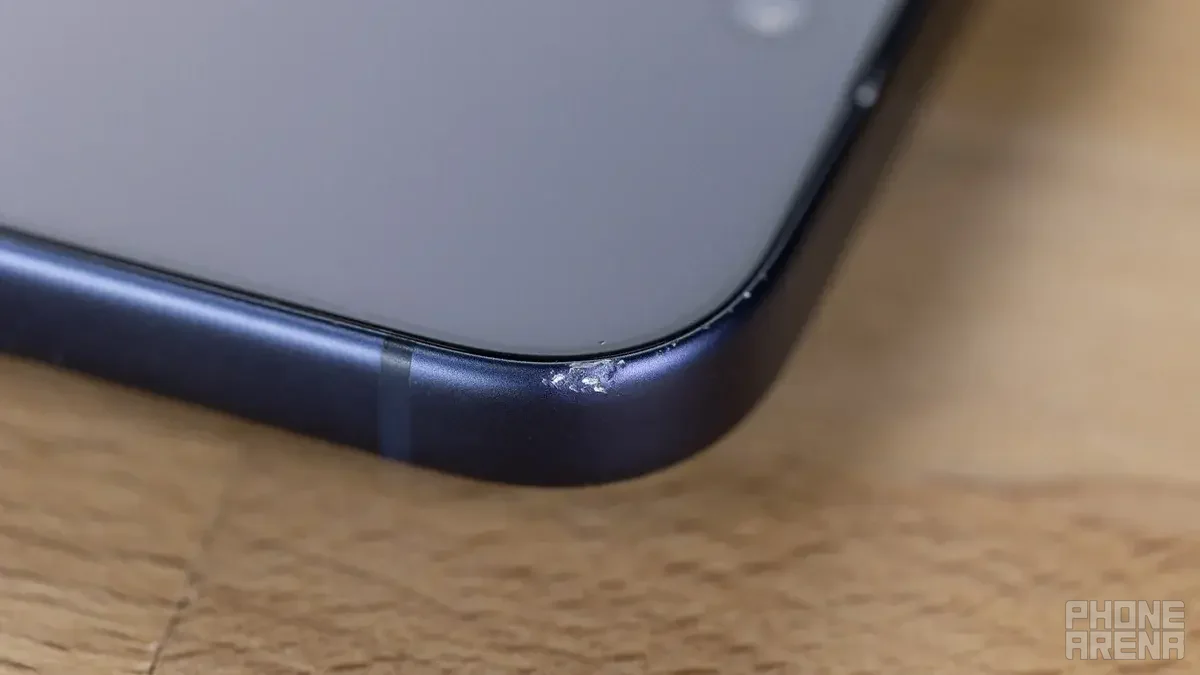
Aluminum isn't too hot in 2025 (Image by PhoneArena)
On the front, the iPhone 17 Pro Max introduces Ceramic Shield 2, which is Apple’s next-generation display glass. According to the company, it’s three times more scratch resistant than the original Ceramic Shield we’ve had since the iPhone 12 (with a minor revision in the iPhone 16, but no proper generational numeral there).
There’s also a new seven-layer anti-glare coating, which should make outdoor visibility noticeably better. Or so we hope. It’s one of those upgrades that’s easy to overlook on paper, but could make a big difference in daily use, at least that's what it did with the Galaxy S24 Ultra and S25 Ultra.
In the other corner, the Pixel 10 Pro XL is scoring a familiar design language, one that doesn't stray away from the design chops of previous Pixels and looks immediately familiar to anyone who has used or seen a Pixel device in the past few years.
Size-wise, the iPhone 17 Pro Max is very slightly thicker, with a projected thickness of 8.75 mm, while the Pixel 10 Pro XL measures at around 8.5 mm, but it will be challenging to notice this minor difference in real life, that's for sure.
| iPhone 17 Pro Max | Pixel 10 Pro XL |
|---|---|
| Dimensions 163.4 x 77.6 mm | Dimensions 162.8 x 76.6 mm |
| Thickness 8.75 mm | Thickness 8.5 mm |
| Weight 233 gr | Weight 232 gr |
The iPhone will continue to be the device with a more varied button lineup. The Action Button and the Camera Controls key are still here, unchanged, while the Pixel 10 Pro XL has no fun extra buttons apart from the standard volume/power button combo.
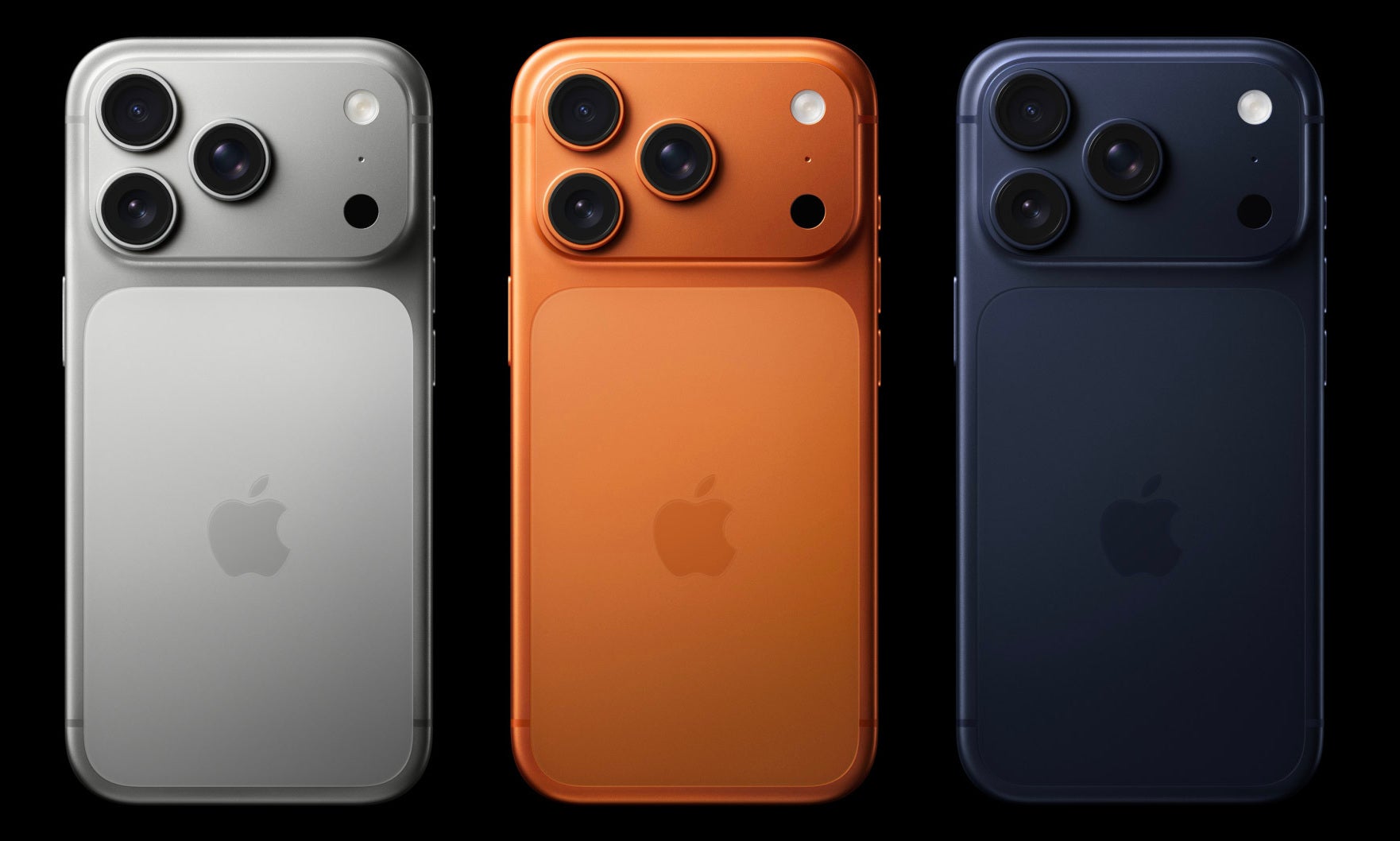
The Pixel 10 Pro XL is available in Moonstone, Obsidian, Porcelain, and Jade colors. Meanwhile, the iPhone 17 Pro Max is coming in a surprisingly limited selection—Silver, Deep Blue, and Cosmic Orange. No black, not even Space Gray!
Display Differences

The iPhone 17 Pro Max is back at it with a 6.9-inch Super Retina XDR screen with thin bezels, 1-120 Hz ProMotion refresh rate and a higher peak brightness of 3,000 nits. Apple also talked about a new 7-layer anti-reflection coating that's applied over that Ceramic Shield 2 glass, which sounds like it will be a very good upgrade to viewability.
The Pixel 10 Pro XL, on the other hand, boasts a slightly smaller 6.8-inch Super Actua OLED display, with 1-120 Hz refresh rate. The highlight here is the peak brightness, 10% higher than the previous Pixel 9 Pro XL and capable of reaching 3,300 nits of peak brightness, which is an astonishing result!
| Apple iPhone 17 Pro Max | Google Pixel 10 Pro XL |
|---|---|
| Size 6.9" | Size 6.8" |
| Brightness 3000 nits (peak) | Brightness 3300 nits (peak) |
As per our display benchmark tests, the Pixel 10 Pro XL edges past the iPhone 17 Pro Max in terms of peak brightness; however, the Pixel 10 Pro XL has inferior minimum brightness. Other than that, the two OLED panels perform very similarly, with excellent colors, contrast, and viewing angles.
The iPhone 17 Pro Max also features multiple layers of antireflective coatings aiming to reduce glare.
The Dynamic Island cutout on the iPhone's display is still there, intact and in full size despite what rumors said. It houses the Face ID sensors, as well as the selfie camera, and will still be either an eye sore or nothing to worry about — depending on which side of that particular fence you are.
In terms of biometrics, the Pixel 10 Pro XL continues Google's affair with ultrasonic fingerprint scanners, which deliver quick and accurate biometrics. Google also offers face unlock via selfie camera, but get this — it employs AI to enhance the security of what is otherwise considered a not-so-secure unlock method. In fact, it cleared safety checks to the point where Google's face unlock is usable within banking apps.
Also read:
Performance and Software
A 3nm conflict in the making

Apple's iPhone 17 Pro Max is the third device to employ a 3nm chipset. The A19 Pro chip will surely increase the upper limits of mobile performance, just as most of its predecessors have — hang tight until we get to run it through the ringer of benchmarks! We expect nothing short of superb raw performance, as well as even better efficiency than before.
We are still concerned about thermal management. Previous A-class processors were hitting excellent scores... for a bit, before the inevitable throttle. And Apple knows this, which is why it talked up a new vapor cooling chamber that's supposed to take care of the cooling.
| iPhone 17 Pro Max | Google Pixel 10 Pro XL |
|---|---|
| Chip Apple A19 Pro | Chip Google Tensor G5 |
| Process 3nm | Process 3nm |
| RAM, Storage 12/256GB 12/512GB 12/1TB 12/2TB | RAM, Storage 16/256GB 16/512GB 16/1TB |
Significant changes have finally come to the Pixel 10 Pro XL as well. It's equipped with the Tensor G5 chip, the first 3nm Tensor chip made by TSMC and also the first truly custom one. It was poised to spell the end of underperforming Tensor chips.
It didn't exactly do that — while it did boost performance, raw benchmark scores still didn't come close to the Snapdragon 8 Elite or Apple A18 Pro. That said, it definitely pumps out enough to drive the Pixel's performance to be steady, snappy, and fast.
It didn't exactly do that — while it did boost performance, raw benchmark scores still didn't come close to the Snapdragon 8 Elite or Apple A18 Pro. That said, it definitely pumps out enough to drive the Pixel's performance to be steady, snappy, and fast.
The iPhone 17 Pro Max totally dominates the performance test, beating the Tensor chipset decidedly. No real competition between these two when raw performance is the test.
Graphics performance is also superior on the iPhone 17 Pro Max, featuring better peak and sustained graphic performance in the 3DMark stress test.
In terms of memory and storage, which also add up to the performance, the iPhone 17 Pro Max supposedly has 12 GB of RAM. We are still going off rumors here, as Apple doesn't officially announce RAM or battery capacity on stage. So, hang tight until analysis and teardowns start hitting.
The reason could be trivial: more headroom is needed to ensure the smooth on-device Apple Intelligence processing for years to come. Apple might want to ensure that the phone will run its AI processes smoothly for as long as it's supported. The iPhone 17 Pro Max comes in 256GB, 512GB, 1TB versions, and now a new 2TB one.
Apple was very modest with the AI announcements around the iPhone 17 — probably not willing to give the Internet any more ammo for the meme gun. What's new here is Live Translate within voice calls, Messages, and FaceTime. And, if using a pair of AirPods Pro, you can have live translation in real-life conversations, too.
The Pixel 10 Pro XL, on the other hand, features 16GB of RAM, and while most of Google's AI processing is done in the cloud, having more of the vital hardware component has never hurt anybody. The flagship Pixel is also available in either 256GB, 512GB, or 1TB versions.
The Pixel 10 Pro XL arrives with Android 16 and will be supported for seven years. The highlight of Android 16 is the Material 3 Expressive redesign that will likely get released in early September (possibly coinciding with the Pixel 10 launch) and will freshen up the aesthetics of the OS.
New here is the Magic Cue feature which is a proactive agent that intelligently suggests relevant actions based on your unique data. For example, if someone messages you about a lunch reservation, Magic Cue will scour your Gmail for reservation confirmation emails and automatically recommend a relevant answer right there in the thread, acting as your virtual butler agent of sorts.
Camera
Triple-camera champs

The iPhone will continue to use a 48MP main camera and a 48MP ultrawide, just like the iPhone 16 Pro Max, but the tetraprism zoom camera is also getting a 48MP upgrade. In fact, all three are now "Fusion" cameras, with Fusion being Apple's fancy way of saying it uses sensor crop-in to achieve "lossless zoom". We will now get a total of 7 steps of this lossless magnification on the zoom wheel — 13, 24, 28, 35, 48, 100, and 200 mm. Plus macro on the ultra-wide, too.
The selfie camera also got an upgrade, with a square-shaped sensor. The reason for this is that you can now take horizontal selfies by holding the phone upwards. In fact, Apple calls it Center Stage camera, as you can change the framing with a touch of a button, or let the AI follow, zoom, and crop around your face. It's also used to upgrade the stabilization for selfie videos or video calls.
Meanwhile, the Pixel 10 Pro XL has scored a camera setup that's mostly similar to the Pixel 9 Pro XL.
It boasts a 50MP main camera, a 48MP ultrawide, a 48MP periscope with 5X zoom, and a high-res 42MP front-facing camera. The highlight here is the periscope camera, however, which has scored the ability to zoom up to 100X thanks to an upgraded Pro Res Zoom. This brings the Pixel on par with most high-end Android flagship phones, like the Galaxy S25 Ultra, Xiaomi 15 Ultra, and others.
| iPhone 17 Pro Max | Pixel 10 Pro XL |
|---|---|
| Main 48 MP, f/1.78 24 mm | Main 50 MP, f/1.68 24 mm |
| Ultrawide 48 MP, f/2.2 13 mm | Ultrawide 48 MP, f/1.7 13 mm |
| Telephoto/periscope 48 MP, f/2.8 4X zoom (100 mm) | Telephoto/periscope 48 MP, f/2.8 5X zoom (113 mm), 100X Pro Res Zoom |
Another cool new feature with the Pixel camera is a built-in Camera Coach, which does exactly what it says on the tin. The feature will provide visual nudges and guidance on how to improve every shot you take, leveling up your camera game.
PhoneArena Camera Score:
In our custom camera test, the iPhone 17 Pro Max finishes ahead of the Pixel 10 Pro XL but the Google phone is breathing down its neck. The main differentiator is video, in which the iPhone scores significantly higher than the Pixel 10 Pro XL.
Main camera
In well-lit conditions, the Pixel 10 Pro XL performs pretty much on par with the iPhone 17 Pro Max, with just slight processing differences in terms of colors and tone. The iPhone is more realistic, while the Pixel a bit more cinematic, if you will.
At lower light, the Pixel 10 Pro XL delivers better dynamics and resolves better detail from darker areas, which is a pretty important distinction.
Zoom quality
In terms of zoom quality, both phones perform very similarly, with lots of details in both sample shots.
Ultrawide camera
The ultrawide is a bit better on the iPhone 17 Pro Max, which boasts slightly better dynamic range and resolves more detail in the shadows.
Selfies
Selfies look great on both devices. The Pixel is pretty decent of its own, but the iPhone is a fairly capable thanks to its Center Stage camera.
Video Quality

Above, you can see how the two compare in video recording. The iPhone 17 Pro Max is clearly a bit better, with better dynamics, details, and stabilization, which are all superior on the Apple device.
Battery Life and Charging
Small moves, big results?

The Pixel 10 Pro XL arrives with a massive 5,200 mAh battery, some 200 mAh larger than its predecessor, and actually the largest one ever fitted on a Pixel phone. Sorry, Pixel 9a, your record was merely a fleeting moment, quickly grasped by a faster and more premium flagship, as it should be!
Another surprising development here is the charging speeds. The Pixel 10 Pro XL supports 45W wired and 25W Qi2.2 wireless charging, making it the fastest charging Pixel phone so far.
| iPhone 17 Pro Max | Pixel 10 Pro XL |
|---|---|
| Battery size 5,088 mAh | Battery size 5,200 mAh |
Charging speeds 40 wired 25W wireless charging MagSafe USB-C | Charging speeds 45W wired 25W wireless charging Pixelsnap USB-C |
According to our in-house tests, the Pixel 10 Pro XL loses to the iPhone 17 Pro Max, with the reason being its unimpressive battery life during gaming. The iPhone with a similarly sized battery performs better in those same tests.
PhoneArena Battery and Charging Test Results:
Apple also upgraded charging speeds. Now taking a 40 W plug, the iPhone 17 Pro Max should get 50% of power for 20 minutes of charging, as per Apple numbers. Unfortunately, we do not have exact battery capacity information just yet. So, we just have to assume it's somewhere north of 4,700 mAh for now.
In our tests, both phones charge at a very similar pace and get fully juiced up in roughly an hour and 16 minutes.
Both phones also have magnetic rings on their backs to accomodate MagSafe or Pixelsnap accessories. Those are fancy names for their own products, in reality both phones will also charge with typical Qi2 chargers — Apple unlocked the patent for the magnets for the Qi standard to make use of it. Enjoy a plethora of third-party accessories!
In our tests, both phones charge at a very similar pace and get fully juiced up in roughly an hour and 16 minutes.
Both phones also have magnetic rings on their backs to accomodate MagSafe or Pixelsnap accessories. Those are fancy names for their own products, in reality both phones will also charge with typical Qi2 chargers — Apple unlocked the patent for the magnets for the Qi standard to make use of it. Enjoy a plethora of third-party accessories!
Audio and haptics
The audio quality of the Apple iPhone 17 Pro Max has been slightly tweaked in comparison with the iPhone 16 Pro Max, but not for the better. Blame it on the aluminum frame if you will, but the sound does not get as loud and feels slightly less rich than the iPhone 16 Pro Max, which delivered significantly more oomph in comparison.
The Pixel 10 Pro XL sounds great, on the other hand. It gets louder, delivers richer sound, and generally has slightly more oomph than this year's top iPhone.
Haptics are great on either device, with precise and strong vibrations.
Specs Comparison
Here's how the iPhone 17 Pro Max vs Pixel 10 Pro XL specs compare in terms of specs.
| iPhone 17 Pro Max | Pixel 10 Pro XL |
|---|---|
| Size, weight 163.4 x 78.0 x 8.75 mm 233 gr | Size, weight 162.8 x 76.6 x 8.5 mm 232 gr |
| Screen 6.9" OLED 120Hz ProMotion 3,000 nits peak brightness | Screen 6.8" OLED 120Hz 3,300 nits peak brightness |
| Processor A19 Pro 3nm | Processor Tensor G5 3nm |
| Versions: 12GB/256GB 12GB/512GB 12GB/1TB 12GB/2TB LPDDR5 | Versions: 16GB/256GB 16GB/512GB 16GB/1TB LPDDR5 |
| Cameras: 48MP main 48MP ultra 48MP 4X zoom Up to 8X lossless, 40X digital 18MP front | Cameras: 50MP main 48MP ultra 48MP 5X zoom 100X Pro Res Zoom 42MP front |
| Battery: 4,700+ mAh | Battery: 5,200 mAh |
| Charging: USB-C 40W wired 25W wireless MagSafe 2.0 | Charging: USB-C 45W wired 25W Qi2.2 wireless Pixelsnap |
Summary

No two ways around it: each of these is a great device, in different ways, of course.
With the iPhone 17 Pro Max, Apple sends the clear message that it can give us the most incremental generational upgrades and still reap wild success. Despite the sidegrade in the design language, the iPhone 17 Pro Max delivers superb performance, great battery life, and a more versatile camera.
The Pixel has a lot going for it, but most of it is lost on the disappointing Tensor G5. We've been saying for five years that this one is tailored for AI, but this gets old now –– can't we have a Tensor chip with decent performance already?
Overall, Google's flagship is still one of the best Android devices you can get if you're in the US, but the iPhone is clearly the better phone.
Follow us on Google News





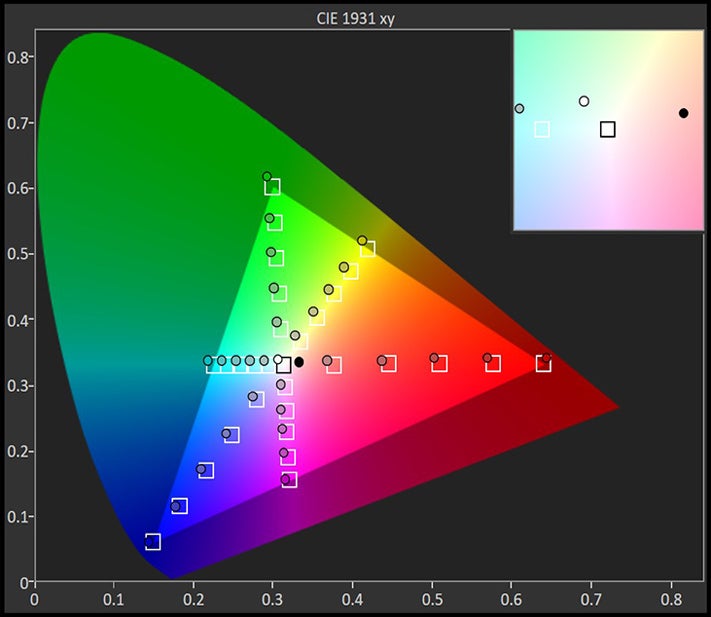





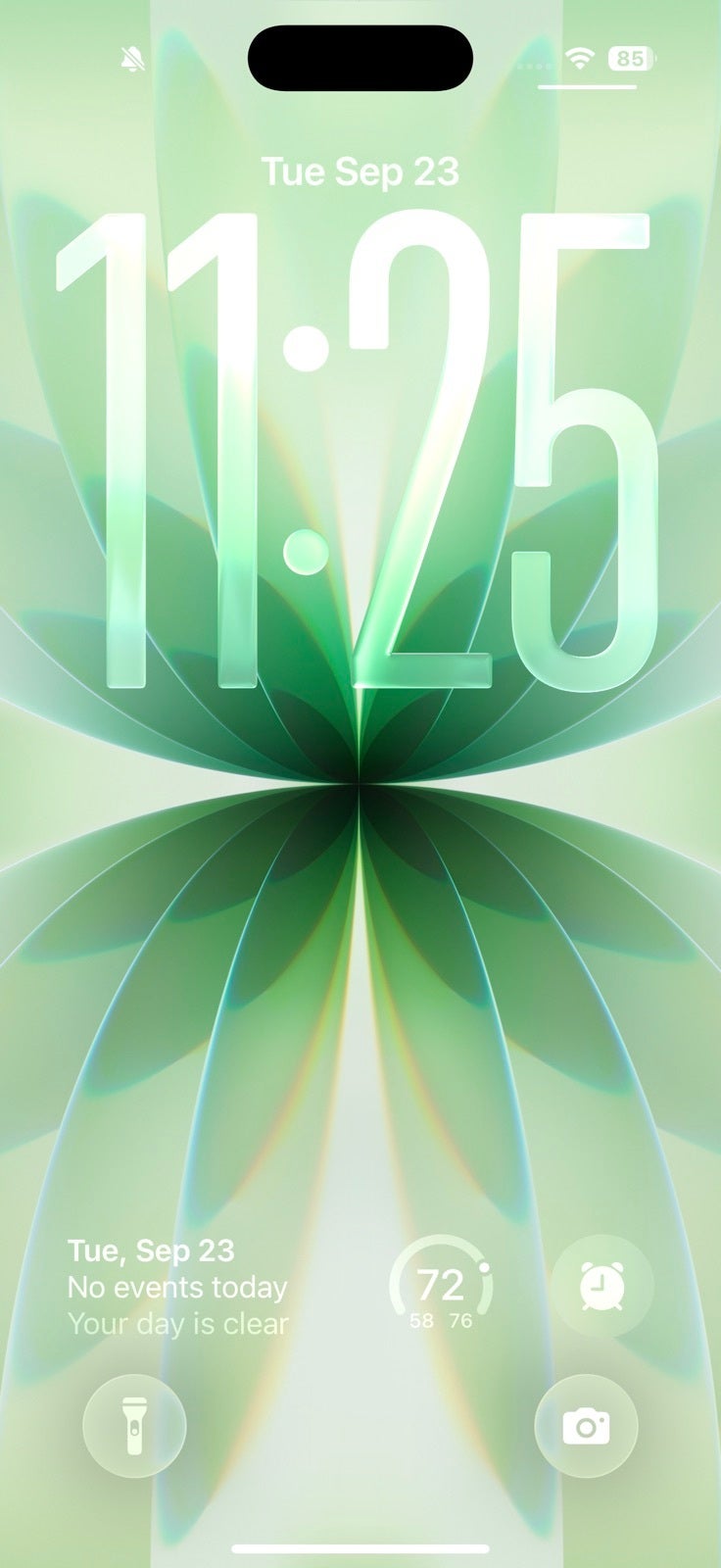
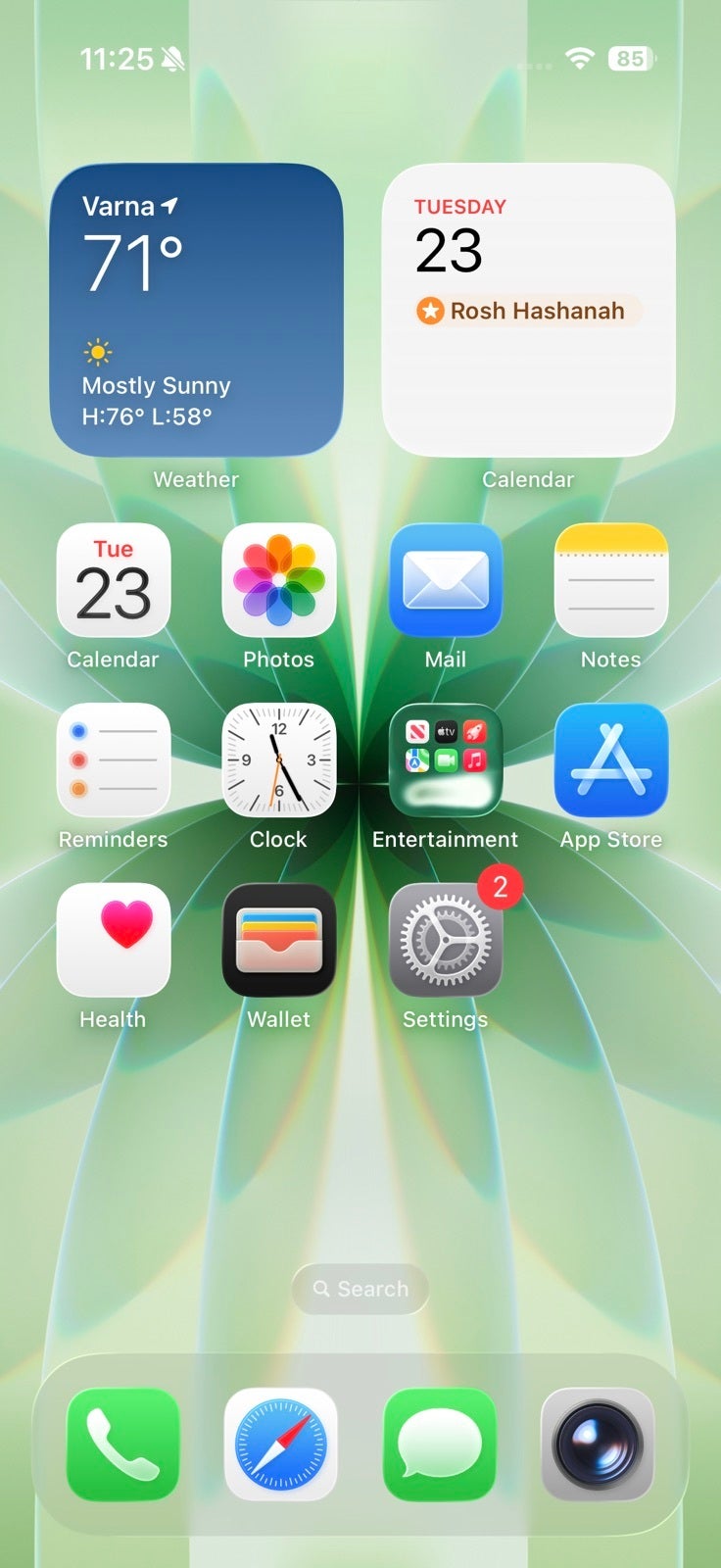
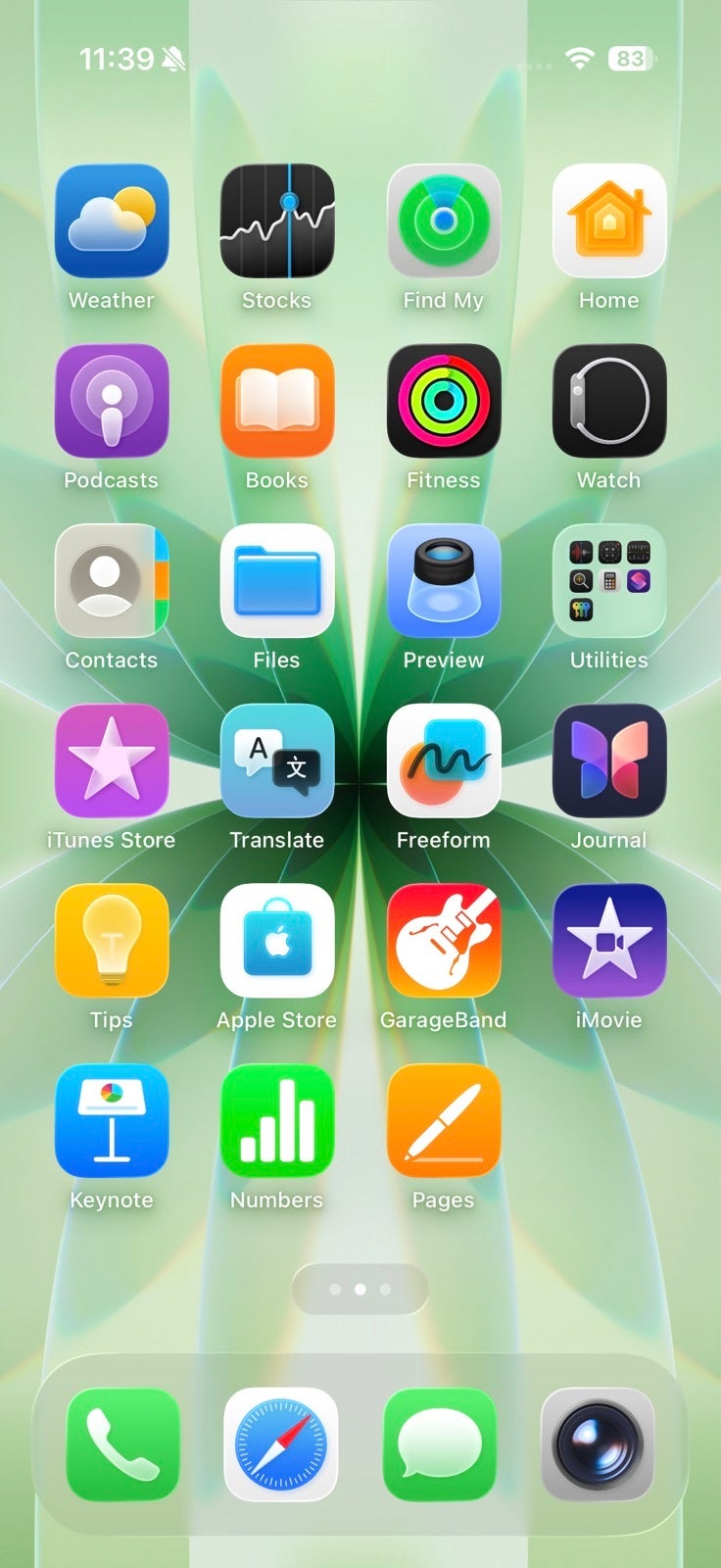
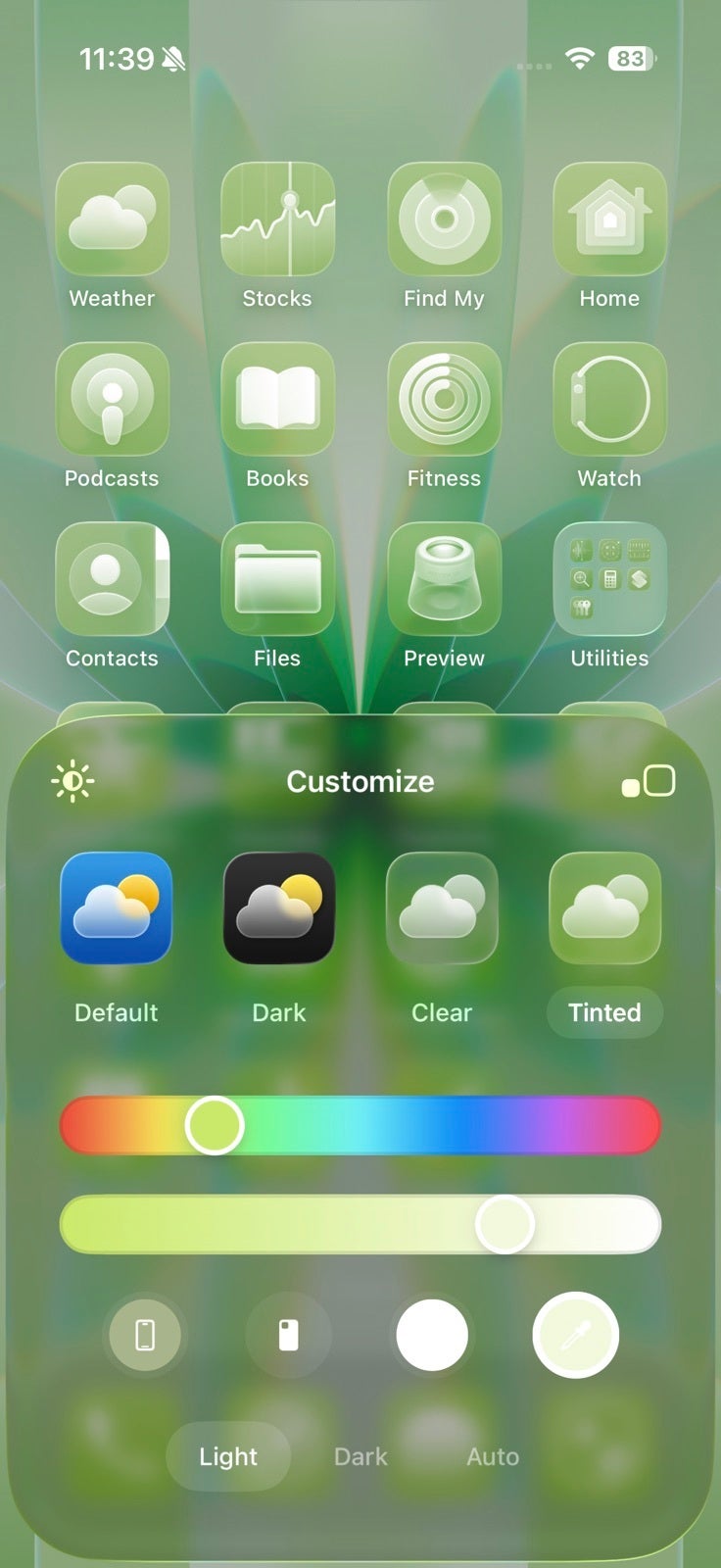





























Things that are NOT allowed:
To help keep our community safe and free from spam, we apply temporary limits to newly created accounts: